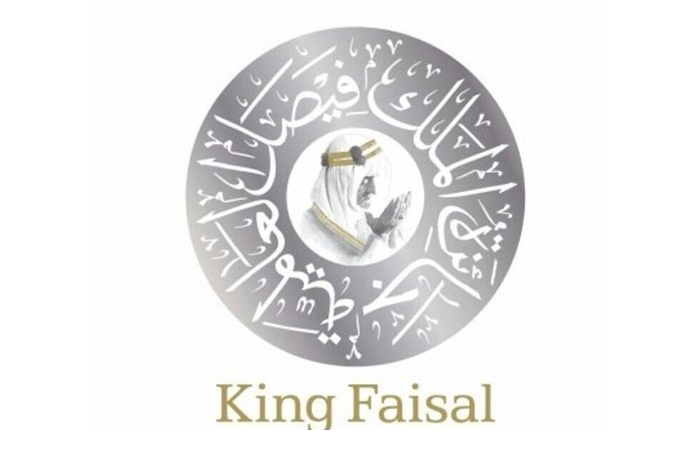
King Faisal International Prize helps highlight role of Arabs in humanity’s progress during last 40 years
As part of its efforts to highlight the role of Arabs in the progress of mankind, the King Faisal International Prize has so far recognized the contributions of 108 Arabs, including individuals of Arab origin, as well as Arab organizations. Among the individual winners are rulers, researchers and scientists.
Currently, nominations for the 40th session of the award are undergoing a comprehensive evaluation process to select the next set of winners in five categories: Service to Islam, Islamic Studies, Arabic Language & Literature, Medicine, and Science.
“The Arab region has historically been a major contributor to humanity’s progress. During the last 40 years, King Faisal International Prize has helped put the spotlight on individuals, including Arab kings, rulers, scientists and researchers with outstanding records of service in various fields, and it is a matter of great pride that a significant number of these winners are Arabs,” said Dr. Abdulaziz Alsebail, Secretary General of King Faisal International Prize.
Of the 108 Arab individuals and organizations who have won the award, 24 have secured in the Service to Islam category, 30 in the Islamic Studies category and 49 in Arabic Language & Literature category. Five have received the award in the Science category.
Among the first Arabs to win the award were Abd Alqadir Al-Qit from Egypt and Ihsan Abbas from Palestine, who were honoured for their contributions to Arabic Language and Literature, especially for highlighting modern trends in Arabic poetry. In 2009, Professor Abd Al-Aziz bin Nasir Al-Manie was given the award in recognition of his distinguished efforts in editing, verifying and elucidating several illustrious Arabic literary works.
King Khalid Bin Abd Al-Aziz of Saudi Arabia received the award in 1981, becoming the first Arab winner of the award in the Service to Islam category. Apart from King Khalid, four other Arab rulers, including King Salman Bin Abdulaziz Al-Saud (2017), King Abd Allah Bin Abd Al-Aziz (2008) and King Fahd Bin Abd Al-Aziz of Saudi Arabia (1984) and Shaikh Dr. Sultan Bin Mohammad Al-Qasimi, Ruler of the Emirate of Sharjah in the UAE, have won the award for their service to Islam (2002).
Among the Arab scientists who won the prize in Islamic Studies was Professor Roshdi Hifni Rashed, an Egyptian with French nationality. He was honoured for his insightful studies and translations of Muslims’ contributions to pure science.
Sir Michael Francis Atiyah from the UK, one of the greatest mathematicians who hails originally from Egypt, won the KFIP in Science in 1987, becoming the first Arab to win the Prize in a category other than Service to Islam, Islamic Studies and Arabic Language and Literature.
Ahmed Hassan Zewail from the USA, who also hails from Egypt, won the KFIP in Science on the topic, Physics, for developing a technique known as ultra-fast laser molecular beam spectroscopy, that helped unravel some of the mysteries of molecules. He later went on to win the Nobel Prize for this discovery in 1999.
Semir Zeki from the UK, who has Arab origins, received the award in 2004 for contributions in Biology centered on the organization of the visual cortex in humans and other primates.
Mustafa Amr El-Sayed and Omar Mwannes Yaghi, also from USA, were honoured for their contributions to the field of Chemistry. El-Sayed won the recognition in 1990 for his works focused on laser spectroscopy helped identify complex chemical systems, which are of importance to life processes, such as energy conversion and transfer, photosynthesis and photochemistry. Omar Yaghi won the award in 2015 for his contributions in the field of metal organic frameworks.
Seven Arab organizations have so far won the award. They include Saudi Arabia’s ‘Sultan Bin Abd Al-Aziz Al-Saud Foundation’, and ‘Saudi Arabian High Commission For Donations To Bosnia-Herzegovina’ – honoured in the Service to Islam category. Other organizations that were winners in the same category are Egypt’s ‘Principal Shari’a Society for Cooperation Between Quran and Sunnah Scholars’, and ‘Al-Azhar Al-Sharif’, and Lebanon’s ‘Al-Hariri Foundation of Lebanon’. The ‘Arabic Language Academy in Cairo, and ‘Arabic Language Academy of Jordan’ won the award in the Arabic Language & Literature category.
Launched by the King Faisal Foundation and granted for the first time in 1979, the prestigious prize was established in memory of King Faisal bin Abdulaziz Al Saud, recognized internationally as the most prominent Arab leader of the 1970s. Until this year, the KFIP has honoured 253 individuals and institutions from 44 countries.


























